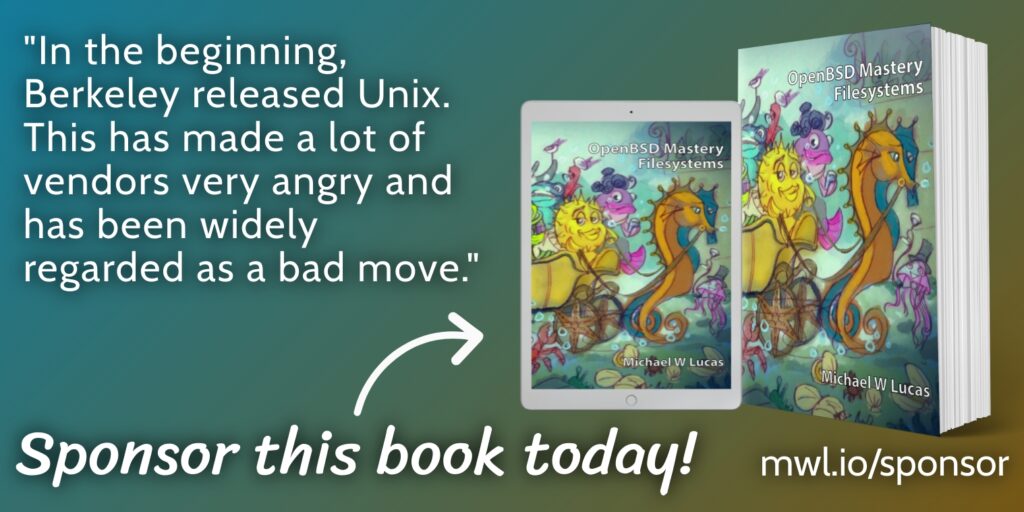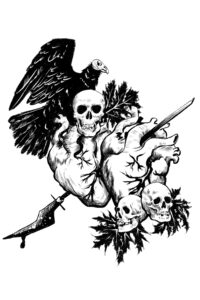After far too long, I have finished a first draft of OpenBSD Mastery: Filesystems. Sponsorships are now closed.
I’m asking tech reviewers to get any comments to me by 15 October 2022. That’s four weeks. It might seem tight, but experience shows that people either get their comments to me immediately, or wait until the last possible weekend. I’m not complaining–I do exactly the same thing. Please return any comments either a) in plain text, with enough context that I can find them when page numbers change, or b) as annotations directly on the PDF.
My tech reviewers are now in their third decade of winning the prize for “most likely to use many different PDF readers.” A file that works for one won’t work for another. I work around this by distributing three PDFs of the manuscript, each identical in contact but prepared differently. Everyone should be able to find one that works for them.
If you’re interested in doing a tech review, please drop me an email (mwl at mwl dot io) saying who you are, why you would make you a good reviewer, and that you won’t share the manuscript. (Piracy is bad, but having my name on an unreviewed and thus certainly incorrect document is horrifying). I’ll ignore responses that can’t follow those instructions, because whenever I don’t I get difficult-to-decipher feedback. (I have previously received PostScript diffs, and… no. Just no.)
I’ll be turning my attention to the Prohibition Orcs copyedits next. Then it’s back to the Epic Giant Fiction Project, and another tech book, title TBA.



